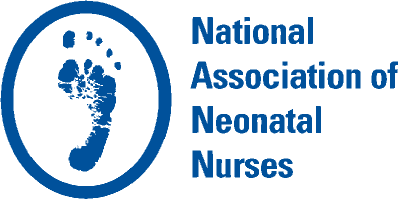Clinical Practice Products
NANN's clinical practice products are the core foundational elements and resources for neonatal staff nurses, nurse managers, and advanced practice nurses in NICUs all over the world. Clinical offerings may or may not include CNE credits.
Curriculum and Guidelines:
Practice Standards in Neonatal Transport, Fourth Edition
NANN published earlier editions as Neonatal Transports: Guidelines for Nursing Practice in 1994, 1998, and 2010 in response to its members’ recognition that care could be improved for critically ill newborns through the implementation of endorsed practice standards developed by nursing experts involved in neonatal transport. This new Practice Standards in Neonatal Transport, fourth edition includes areas not addressed in previous versions e.g., the historical evolution and necessity of transport, accreditation processes, levels of perinatal care, various types of transports, digital platforms for documentation, and the incorporation of outcome metrics into a transport program.
Core Curriculum for Neonatal Intensive Care Nursing, 6th Edition
This publication provides in-depth coverage of common neonatal disorders and management and highlights the essentials of each condition including definition, etiology, pathophysiology, signs and symptoms, diagnostic tests, treatments, and outcomes.
Policies, Procedures, and Competencies for Neonatal Nursing Care, 6th Edition
Policies, procedures, and competencies are the foundation of patient care and drive nursing practice. This sixth edition helps advance an organization's commitment to evidence-based nursing and provides a strong support to neonatal nurses and neonatal nurse practitioners as they seek to give the highest quality of care to their vulnerable patients.
Newborn Safe Sleep Guideline
NANN’s Newborn Safe Sleep Guideline is the only clinical practice guideline that addresses the challenges of implementing safe sleep practices in the hospital setting and includes recommendations on how to do so effectively for children between birth and 1 year of age. This guideline is supported by Pampers, part of the Procter & Gamble Family.
Neonatal Skin Care Evidence-Based Clinical Practice Guideline, 4th Edition
Newborn skin care practices have the potential to impact skin for many years. This revised guideline is targeted to obstetric, postpartum, and neonatal nurses, and other healthcare providers caring for newborns in various settings. New recommendations based on current research focus on appropriate skin care practices for term and preterm newborns. Expanded topics include bathing, atopic dermatitis and emollients, management of diaper dermatitis, intravenous extravasation, parent education, and product selection considerations.
Newborn Pain Assessment and Management Guideline for Practice, 3rd Edition
This third edition guideline offers an updated outline of pain assessment and management practices that are accepted and documented by experts in neonatal care. Recommendations and rationale for infant nursing care reflect the best evidence available on the assessment and management of pain in hospitalized preterm and full-term newborns.
Peripherally Inserted Central Catheters: Guidelines for Practice, 4th Edition
This updated fourth edition of Peripherally Inserted Central Catheters: Guideline for Practice provides essential information for healthcare providers in the NICU, whether they are placing PICC lines or caring for infants who have a PICC.
Infant-Directed Oral Feeding for Premature and Critically Ill Hospitalized Infants
This guideline offers evidence-based protocols that can be individualized to an infant’s abilities (infant-directed) and acknowledge the family as the primary caregiver and feeder (family-centered). Guidance is provided for nurses to help parents interpret infant cues during feeding, problem solve infant behavior issues, and explore interventions to support the infant’s self-regulation throughout feedings.
Neonatal Parenteral and Enteral Nutrition: A Resource Guide for the Student and Novice Neonatal Nurse Practitioner
This revised guideline is targeted to student Neonatal Nurse Practitioners and the Advance Practice Neonatal Practitioners to aid in understanding and rationale behind parenteral nutrition and the use of human milk for neonatal patients. The expert Neonatal Intensive Care Unit nurse may find this a helpful guideline as well. Guidelines have been updated with the current recommendations from ESPGHAN, ESPEN, ESPR and CSPEN guidelines on parenteral nutrition as well as the most current evidence-based literature.
Thermoregulation in the Care of Infants Guideline for Practice
This practice guideline will assist the obstetrical, post-partum, and neonatal nurses as well as other health care providers in providing appropriate thermal support/regulation in a variety of settings. Using the most current evidence-based research, the practice guideline will provide direction for implementing best practices in the thermal management of the pre-term, term, and post-term infant.
Resources:
Neo-Care Cards
Neo-Care Cards™ give you valuable information for bedside care in a concise, accessible format. You'll find conversion and calculation charts, anatomical diagrams of circulation pathways, and information on care of extremely-low-birth-weight and very-low-birth-weight infants, chest-tube insertion, changing and maintaining peripherally inserted central catheters, and kangaroo care.
Infant Safe Sleep Prompt Deck
NANN, with the support of Pampers, part of the P&G family, has developed an Infant Safe Sleep Prompt Deck as part of the Pamper's Safe Sleep Initiative. This educational tool serves as a reinforcement of NANN's Safe Sleep Guideline. Designed to be used by neonatal nurses with caregivers, it outlines the important elements of following the Safe Sleep Guideline in practice.
Online Learning:
Understanding Clinical Research
A self-paced learning module designed to familiarize you with the principles of conducting and using research. The module is divided into five sections: Foundations of Research, Research Design and Measurement, Statistical Analysis, Review of a Research Article, and Application of Learning.
